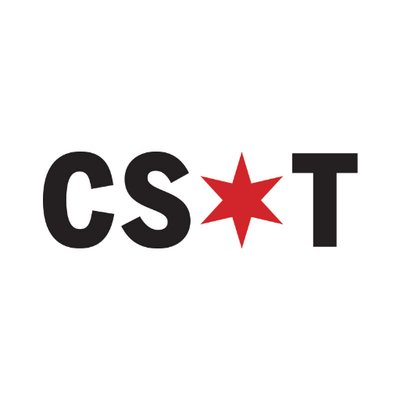



Chicago activists gathered in front of City Hall, on the last day of the federal COVID-19 public health emergency, to demand more funding for the city’s health department.
They want a meeting with Mayor-elect Brandon Johnson to discuss an ordinance they have drafted calling for more money for both the Chicago Department of Public Health as well as community-based public health programs.
These proposed community-based programs include turning Chicago Public Schools into neighborhood health centers that offer services including vaccinations and STI screenings.
“We would like to give congratulations to Mayor-elect Brandon Johnson,” said Lonette Sims, chair of the People’s Response Network one of about a half-dozen activists who attended the news conference. “We look forward to helping his administration create a healthy and equitable Chicago.”
Howard Ehrman, who was an assistant commissioner at the Chicago Department of Public Health under Mayor Harold Washington, said that since 1989, the CDPH has shrunk significantly in staff and resources.

Howard Ehrman, a former Chicago Department of Public Health assistant commissioner, worked under Mayor Harold Washington in the 1980s. He said since 1989, the Chicago Department of Health has shrunk considerably.
Pat Nabong/Sun-Times
Ehrman claimed the CDPH had 2,000 employees in 1989, but 600 employees today. Those numbers could not be immediately verified.
The city health department did not immediately respond to a request for comment.
This proposed ordinance aims to “rebuild” the CDPH, Sims said. The ordinance and a letter were sent to the mayor’s office last week, Sims said.
Sims expressed “vehement” opposition to ending the COVID-19 public health emergency, citing concerns about Americans losing heath care coverage, as well as the continued deaths from COVID-19.
If passed, this ordinance would establish public health teams operating out of public schools and hire community members as public health workers. They would go to schools and door-to-door, offering a range of public health services. It also asks for environmental and building inspectors to address concerns about asbestos and other health hazards.

Kathy Powers of the Alliance for Community Services attended a news conference Thursday outside City Hall to express her concern over the decrease in mental health facilities in Chicago.
Pat Nabong/Sun-Times
This is the second ordinance the group has proposed to expand public health funding, Sims said. The first, introduced in March 2021, sought funding from the American Rescue Plan Act and focused primarily on the COVID-19 response.
That ordinance was sponsored by 25th Ward Ald. Byron Sigcho-Lopez, tapped to be City Council floor leader for Johnson. It was assigned to the rules committee, the traditional burial ground for legislation the mayor opposes. Sims said no alderperson has stepped up to sponsor the new ordinance yet.
This new ordinance wants funding built into the city budget, instead of relying on federal COVIDE relief funds said Paul Siegel, who spoke on behalf of Northside Action for Justice on Thursday.
The department, Siegel added, relies heavily upon grants for funding. This ordinance aims to help CDPH secure more funding from the city’s budget.
Kathy Powers, who represented the Alliance for Community Services at the news conference, said she deals with “severe” mental illness and hopes to see shuttered mental health facilities reopen. She said she is “heartened” by Johnson’s election, but added: “Brandon has his work cut out for him.”
